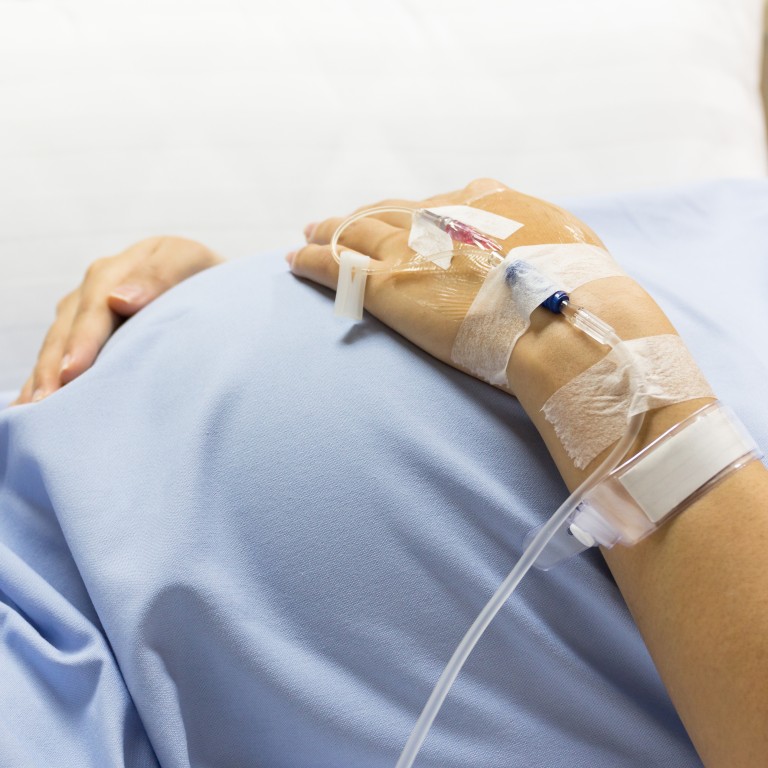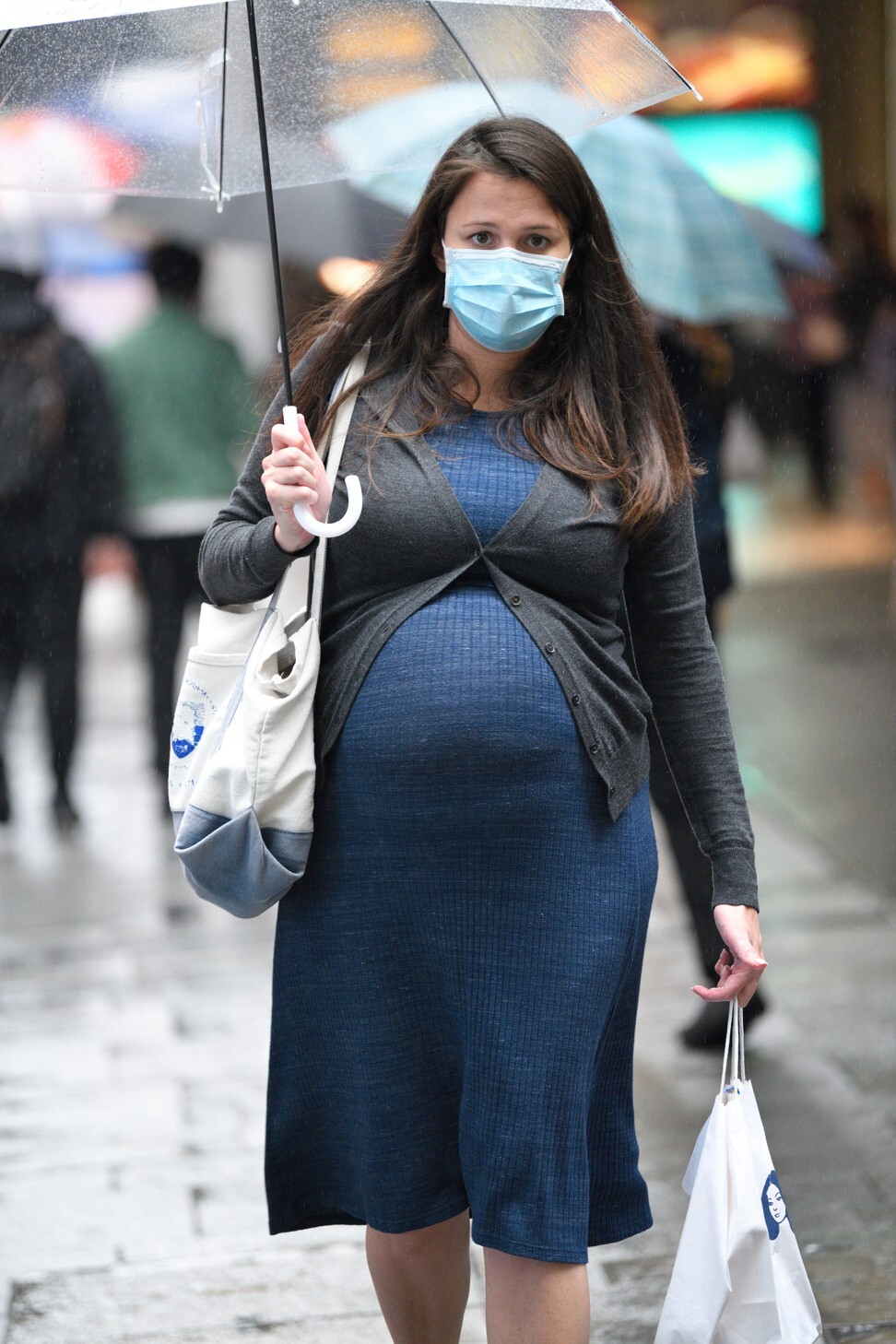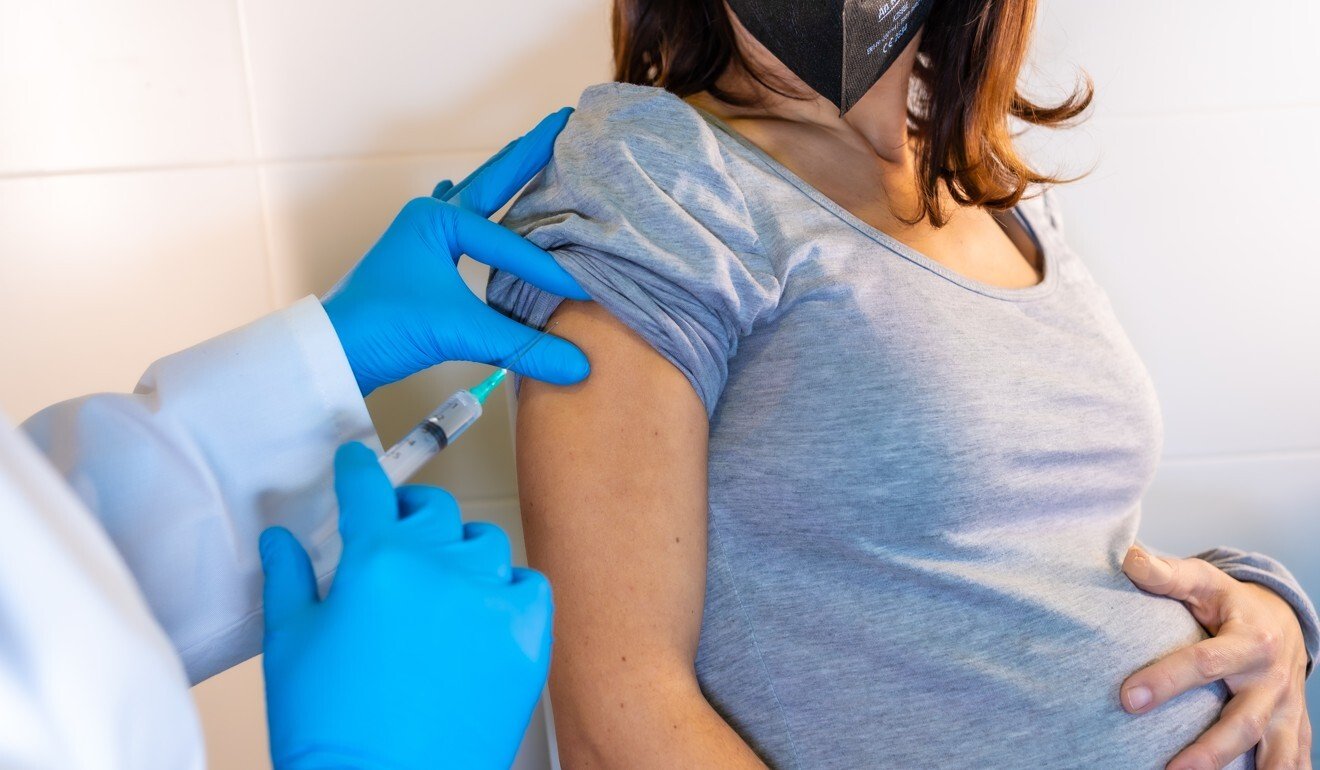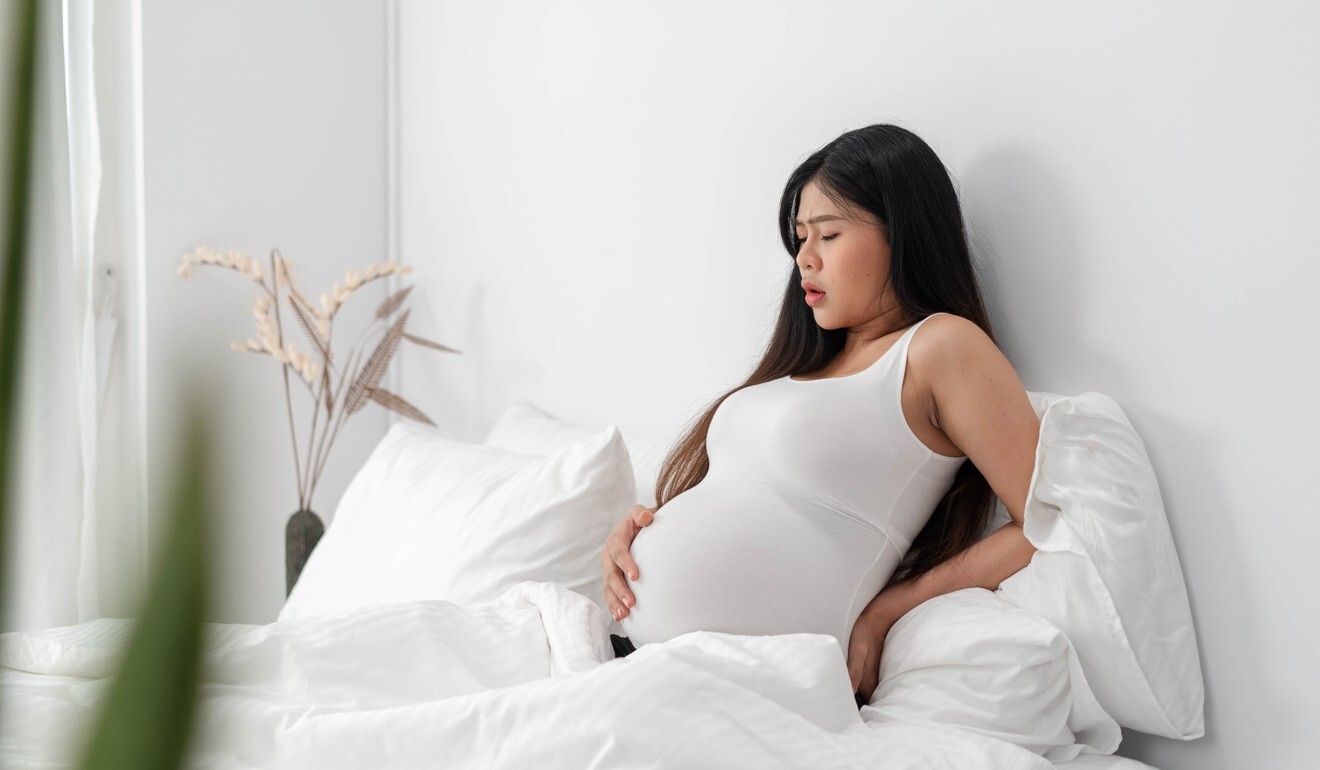
Coronavirus: Pregnant women have higher chance of severe symptoms; risk to babies is ‘very low’
- A global study has shown that pregnant women are more likely to be admitted to intensive care for Covid-19 or need ventilation
- Age, ethnicity, weight and pre-existing conditions are all added risk factors
Pregnant women, particularly those from ethnic minorities, are at increased risk of severe Covid-19, according to a global study.
They are also more likely to be admitted to intensive care or to need invasive ventilation than women of reproductive age who have the virus but are not pregnant.

Lead researcher Dr John Allotey, of the University of Birmingham-based WHO Collaborating Centre for Global Women’s Health, said: “Pregnant women should be considered a high-risk group, particularly those identified to have risk factors.”
But he reassured mothers that risks to their babies were “very low”.
The review found that one in 10 pregnant and recently pregnant women attending or admitted to hospital for any reason were confirmed to have Covid-19.
How does the coronavirus affect my pregnancy?
But death rates were low at just 0.02 per cent, with 339 pregnant women with confirmed Covid-19 dying from any cause. These figures were based on 41,664 women involved in 59 studies. Overall rates of stillbirth and neonatal death were also low in women with suspected or confirmed coronavirus, the review found.
The research showed that the most common symptoms of Covid-19 in pregnant women were fever (40 per cent) and cough (41 per cent), and that they are more likely to have an asymptomatic infection than women of reproductive age who are not pregnant.

Increased maternal age, high body mass index, non-white ethnicity, and pre-existing comorbidities including chronic hypertension and diabetes were identified as risk factors for pregnant women developing severe Covid-19.
Emerging evidence from the review also found pregnancy-specific conditions such as pre-eclampsia and gestational diabetes may be associated with severe Covid-19. But researchers say it is too early to tell how strong this link is and more data is needed.
Fellow researcher Professor Shakila Thangaratinam said: “Pregnant women and health care professionals will need to take into account the additional risks faced by pregnant women with Covid-19 in making decisions such as the taking up of vaccines if offered to prevent Covid-19 ....”
Mums-to-be unhappy with Hong Kong public hospitals’ ban on dads
She added: “In the current situation, where evidence is rapidly produced, our living systematic review – underpinned by robust methods and continually updated at regular intervals – is crucial to address important research questions and to shape health care policy and clinical decision-making.”
Further international research, recently published in the open-access journal PLoS One, revealed high proportions of pregnant women felt stressed, depressed or lonely during the height of the pandemic.
A survey conducted in May and June 2020 found high levels of anxiety, depression and post-traumatic stress in relation to Covid-19 among pregnant women and those who had recently given birth.

The study, by the Harvard TH Chan School of Public Health, was conducted in 64 countries and in 12 languages, and involved 6,894 participants.
Women gave information on demographics, Covid-19 exposure and their worries about it, information-seeking behaviour, Covid-19 prevention behaviours, and symptoms of mental ill-health.
The research found that 31 per cent of pregnant or recently pregnant women had elevated anxiety and depression, 53 per cent experience loneliness and 43 per cent reported post-traumatic stress in relation to Covid-19 despite only 2 per cent being diagnosed with the virus.
How an expectant mother kept her cool during crisis
The rates were higher than reported for the general population during the pandemic and for women in the final stages of pregnancy or who had recently given birth before the pandemic.
The study also found that women seeking information from any source – including social media, news or by word of mouth – five or more times a day were more than twice as likely to experience elevated post-traumatic stress and anxiety or depression.
It found that women who took health and safety precautions did not suffer an adverse affect on their mental health. Although 93 per cent of the women surveyed practised hand hygiene and 84 per cent reported wearing a mask, these behaviours were not associated with symptoms of anxiety or depression.

Lead researchers Karestan Koenen and Archana Basu said: “Our results suggest that globally, pregnant women and new mothers’ mental health is still another casualty of the Covid-19 pandemic.
“Maternal mental health and well-being is critical for mothers and foundational for healthy child development. There is an urgent need for maternal mental health to be fully integrated into standard prenatal and post-partum care.”
A startling report in medical journal The Lancet in April concluded that the coronavirus pandemic led to avoidable deaths of pregnant women and their babies. Data from 40 studies done in 17 countries in the past year found rates of stillbirth and maternal mortality rose by a third.
The increase was in part due to pregnant women seeking less medical help because of the fear of Covid-19 infection.

